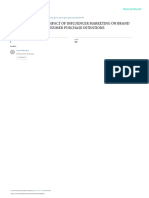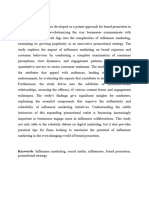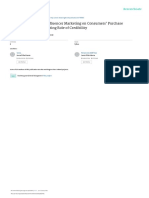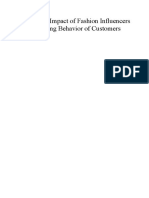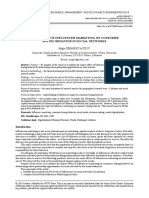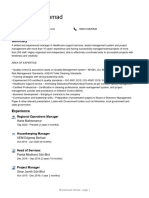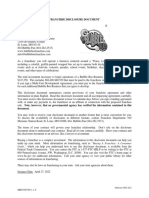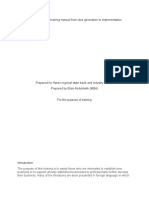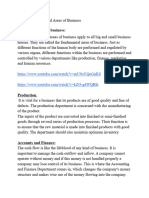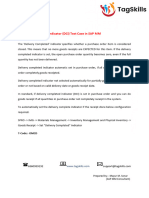0% found this document useful (0 votes)
24 views7 pagesProject Chapter 3
This study investigates the impact of influencer marketing on brand visibility and consumer behavior, focusing on how influencer promotions influence online engagement and website visits. It aims to provide insights into the effectiveness of influencer collaborations, particularly among social media users in Thrissur district, Kerala. The research methodology includes a descriptive study with primary data collected through surveys, analyzing consumer responses to understand the role of influencers in shaping purchasing decisions.
Uploaded by
cbdeepak902Copyright
© © All Rights Reserved
We take content rights seriously. If you suspect this is your content, claim it here.
Available Formats
Download as PDF, TXT or read online on Scribd
0% found this document useful (0 votes)
24 views7 pagesProject Chapter 3
This study investigates the impact of influencer marketing on brand visibility and consumer behavior, focusing on how influencer promotions influence online engagement and website visits. It aims to provide insights into the effectiveness of influencer collaborations, particularly among social media users in Thrissur district, Kerala. The research methodology includes a descriptive study with primary data collected through surveys, analyzing consumer responses to understand the role of influencers in shaping purchasing decisions.
Uploaded by
cbdeepak902Copyright
© © All Rights Reserved
We take content rights seriously. If you suspect this is your content, claim it here.
Available Formats
Download as PDF, TXT or read online on Scribd
/ 7



















